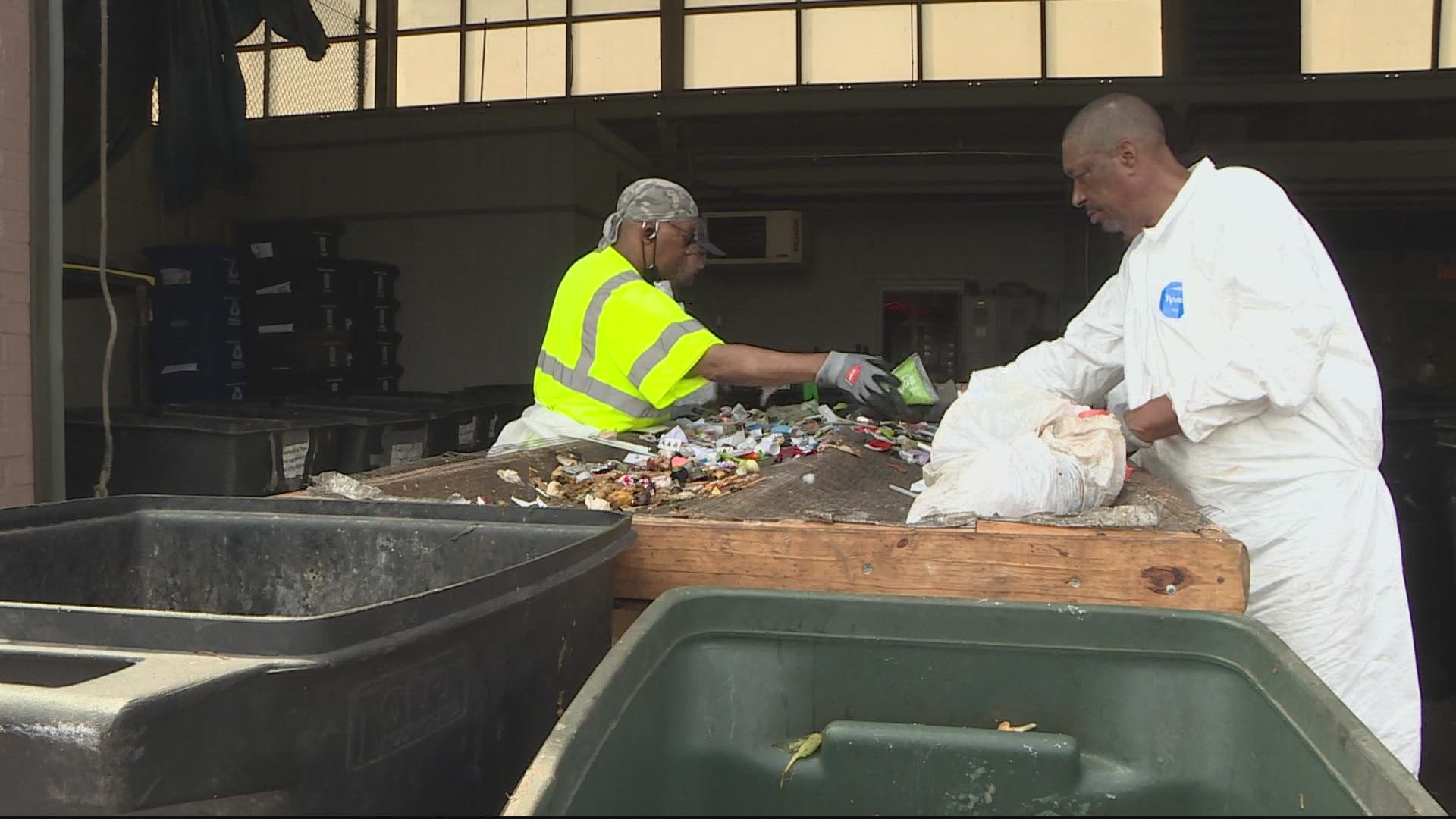ARLINGTON, Va. — As Arlington County officials determine how to better manage waste, a team of individuals with the solid waste department is sifting through the dirty details.
Every quarter, Arlington County Solid Waste conducts a waste audit to analyze trends and what is being thrown out in the trash.
"The waste audits really allow us to keep our thumb on the pulse," Environmental Sustainability Planner Douglas Krietemeyer said. "It just allows us to see the evolution of the waste stream and allows us to implement programs as necessary or create educational campaigns."
Every day for the rest of the week, the team collects trash from 20 households and separates the waste in a multitude of categories. Krietemeyer said he is noticing different types of material used in packaging for the same product, especially plastic. Overall, the amount of waste collected in the county has remained consistent, even with the pandemic, likely due to the recycling and organics services available.
Although the process is not new to the county, a recent program derived from the audits is helping highlight the need for more awareness. Up to 25% of all the waste generated in the county consists of food scraps and waste, per Krietemeyer.
The county implemented a food scraps collection program in September, which gave residents the option to segregate the items into a green organics bin.
A recent analysis found about 27% of all the food scraps that were generated before are now ending up in the green organics bin. When it was first implemented, data showed the green bins collected 15% of food waste.
"There is still a lot that ends up in the trash but it just says to us, that we have a long way to go," Krietemeyer said. "We can continue educating residents about throwing that into the green bin instead of the trash can."
By separating food scraps for compost, it diverts them away from the landfill or incineration and breaks down naturally, preventing them from producing greenhouse gases.
The county is currently working on a Zero Waste Plan for 2024 which will govern how solid waste is managed over the next 20-year period.

